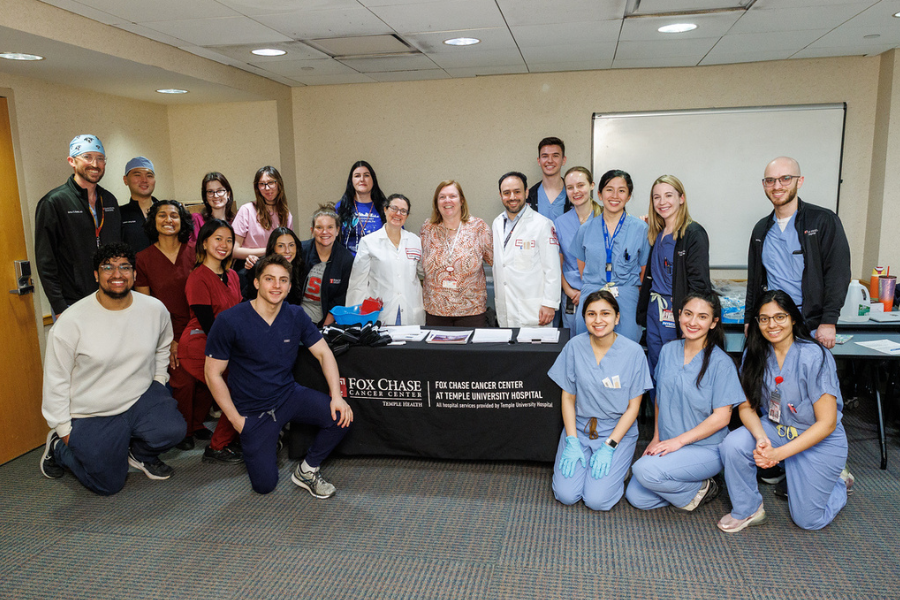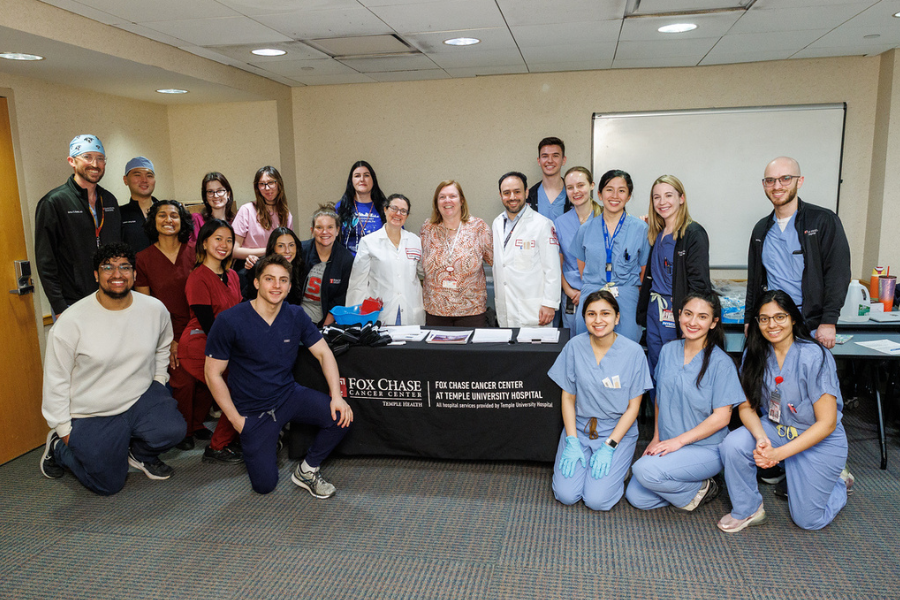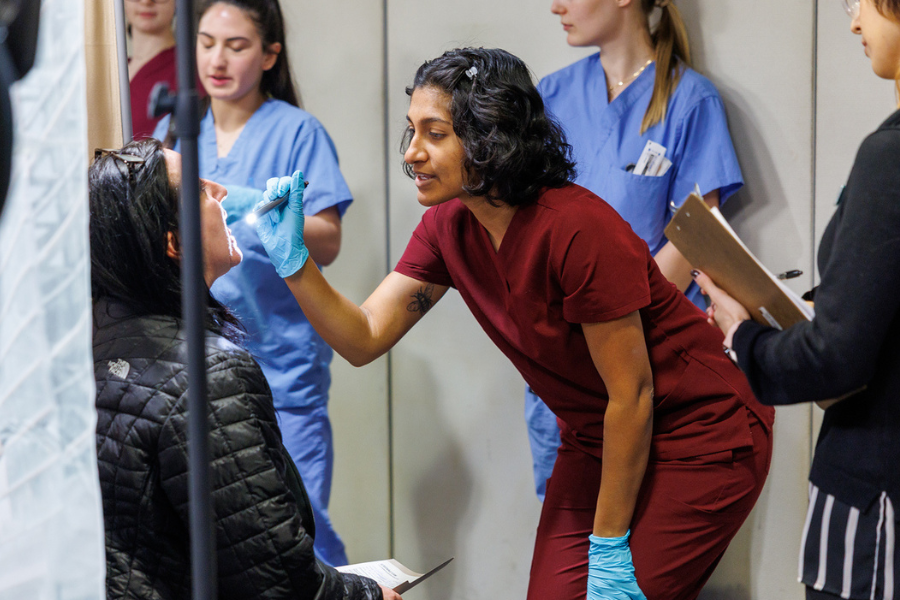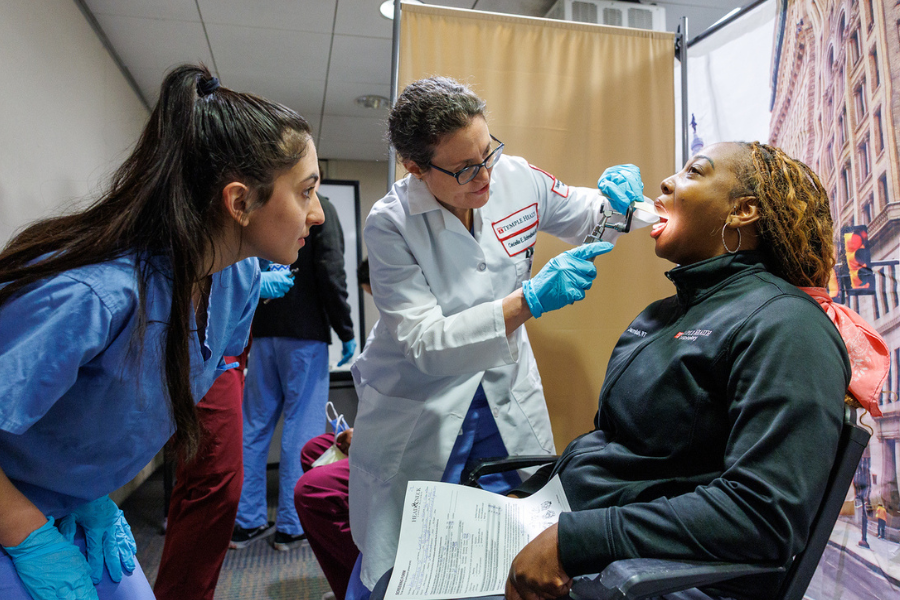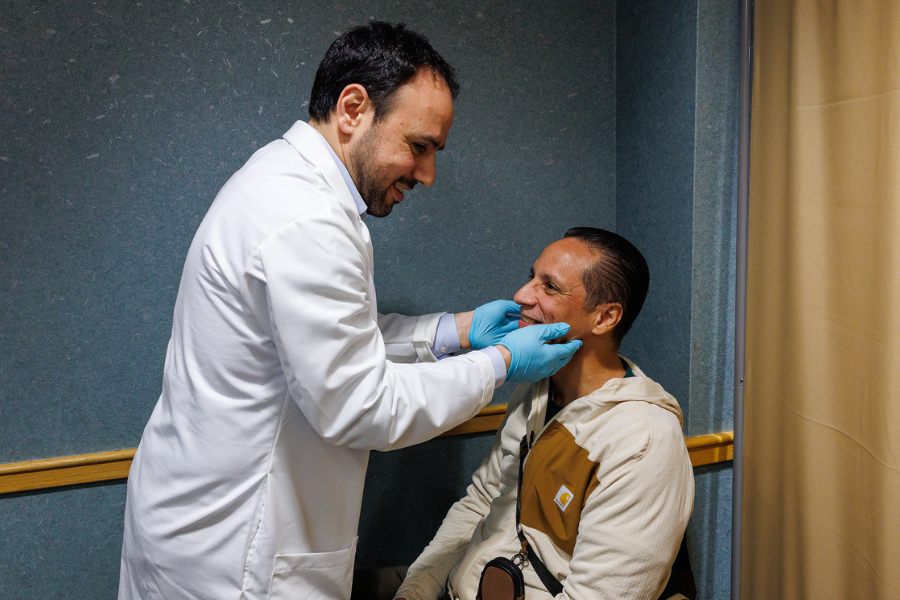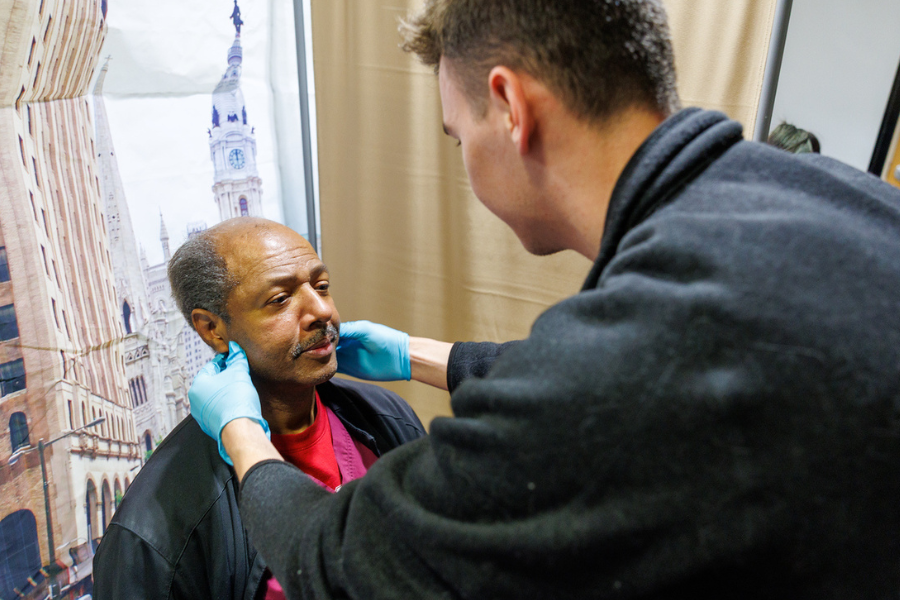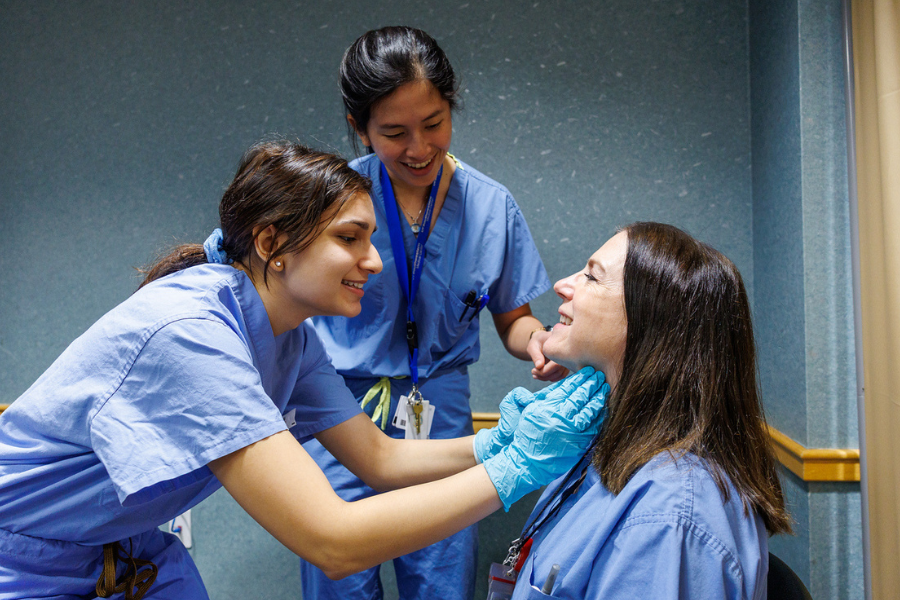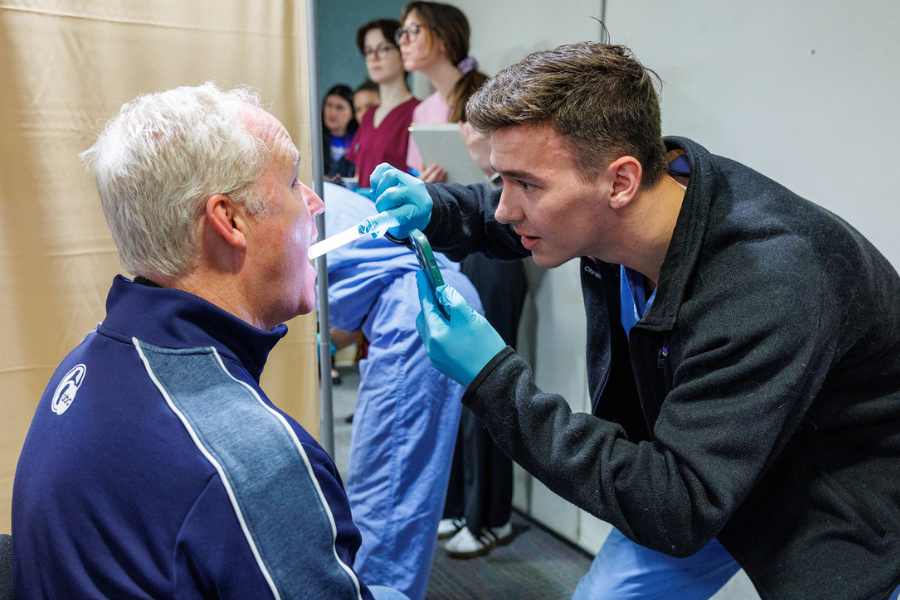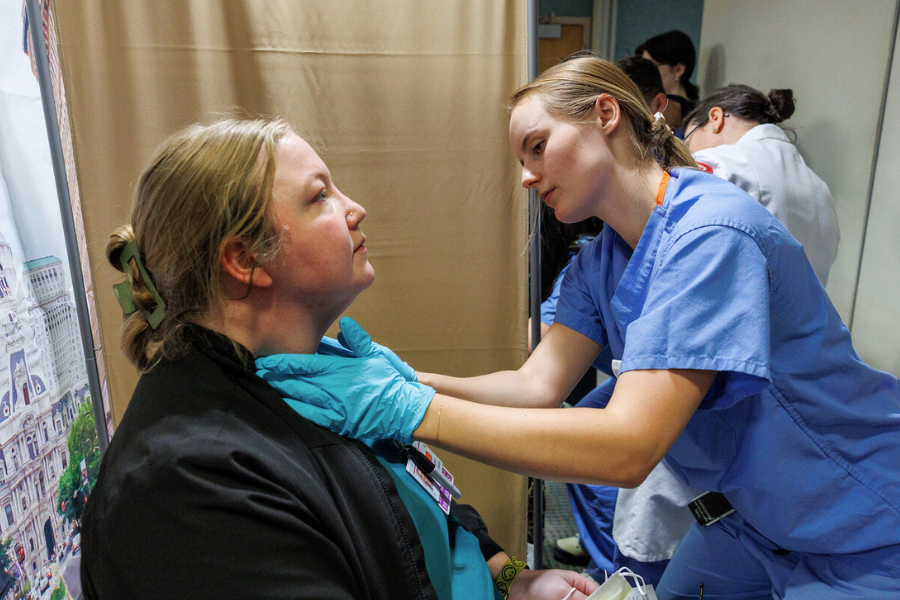Did you know a five-minute screening could save your life? That’s why the Temple Head & Neck Institute and Fox Chase Cancer Center at Temple University Hospital teamed up to hold our annual Head and Neck Cancer Screening, where we offered patients, employees, and community members free comprehensive exams and connected those with possible symptoms to further evaluation and treatment.
“If can we identify head and neck cancers early, we can catch them before they spread to the lymph nodes and other organs such as the lungs or liver,” says Cecelia E. Schmalbach, MD, MSC, FACS, System Chair & Chief of the Department of Otolaryngology-Head and Neck Surgery.
“When their cancer is detected early, patients can often be treated with a single modality like surgery or radiation, and have fewer side effects compared to those who present with a later stage of cancer that needs multimodal treatment,” she continues. “That’s why patients with early-stage squamous cell carcinoma—the most common type of mucosal head and neck cancer—have a lower recurrence rate and a better prognosis.”
Some of the most common risk factors for head and neck cancer are drinking, smoking, or and using tobacco products like dip and chew. “More recently, we’ve found a strong correlation between the human papilloma virus (HPV) and tonsil/base of tongue cancer, especially in men,” Dr. Schmalbach adds.
“We used to see these kinds of cancers in people in their 60s, 70s, and 80s,” adds Jobran Mansour, MD, Assistant Professor of Otolaryngology-Head and Neck Surgery at the Lewis Katz School of Medicine. “Now, because of the rise in HPV rates, we’re finding them in patients in their 40s, 50s, and early 60s.”
Bringing Together Temple Resources
The early signs of head and neck cancer include persistent neck pain, throat pain, difficulties swallowing, a non-healing ulcer in the mouth, and unexplained weight loss, with some patients also experiencing ear pain.
Vocal changes are also a common symptom—which is why we invited Katie Donocoff, MS, CCC-SLP, Clinical Assistant Professor in Temple University’s Department of Communication Sciences and Disorders, and her Speech Pathology graduate and undergraduate students to attend the screening event.
“Speech Pathologists can play a key role in identifying head and neck cancers, as we may be the first to identify abnormalities in the mouth and throat,” Donocoff says. “Many of the treatments for these kinds of cancers affect speech, swallowing, and voicing, so we’re often involved in helping patients recover and regain function.”
At the event, residents performed the screenings, while medical and graduate speech pathology students were on hand to help. “We also distributed information about Fox Chase’s Tobacco Cessation Program,” says Oncology Patient Navigator Melissa Hutchison, OPN-CG. “That way, if people wanted to take the next step in preventative care and change their behaviors that could lead to head and neck cancer, we could get them connected with resources.”
Earlier Detection, Improved Outcomes
The goal of this event was to educate attendees about head and neck cancer risk factors, and to ensure those with positive findings were treated as soon as possible.
“Head and neck cancer is very curable in its early stages: patients have an 80-90% chance of recovery,” Dr. Mansour explains. “But it becomes extremely difficult to treat in its advanced stages. If it’s detected in those later stages, the chance of recovery drops to 50%—and the cancer can progress to that point in a matter of months.”
That makes early detection all the more important, and means these kinds of screening events are crucial. Dr. Mansour also encourages anyone experiencing symptoms to make an appointment with a physician.
“If you have these early signs of head and neck cancer, or if you have the risk factors, please go and get checked,” he says. “It can really make a difference.”
